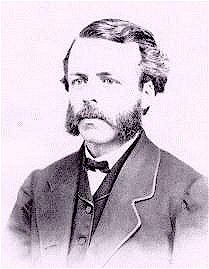Some Baptist contributions during the war years take place away from battlefields. Words themselves are powerful, ever more so as the war nears the one year anniversary of the firing upon Fort Sumter.
Perhaps the most notable moment this month among Baptists of the North occurs on a Wednesday night at the First Baptist Church of Philadelphia. A guest speaker, 28-year old Joseph Gilmore, graduate of Brown University and Newton Theological Seminary, preaches on Psalm 23, focusing on the sentence, “He leadeth me beside the still waters.” As Gilmore later recounts:
Those words took hold of me as they had never done before, and I saw them in a significance and wondrous beauty of which I had never dreamed.
It was the darkest hour of the Civil War. I did not refer to that fact—that is, I don’t think I did—but it may subconsciously have led me to realize that God’s leadership is the one significant fact in human experience, that it makes no difference how we are led, or whither we are led, so long as we are sure God is leading us.
At the close of the meeting a few of us in the parlor of my host, good Deacon Wattson, kept on talking about the thought which I had emphasized; and then and there, on a blank page of the brief from which I had intended to speak, I penciled the hymn, talking and writing at the same time, then handed it to my wife and thought no more about it. She sent it to The Watchman and Reflector, a paper published in Boston, where it was first printed. I did not know until 1865 that my hymn had been set to music by William B. Bradbury. I went to Rochester [New York] to preach as a candidate before the Second Baptist Church. Going into their chapel on arrival in the city, I picked up a hymnal to see what they were singing, and opened it at my own hymn, He Leadeth Me.
Gilmore’s hymn becomes the most enduring Baptist-penned hymn written during the Civil War.
Sources: The story of the hymn, “He Leadeth Me” (link); image (link)



